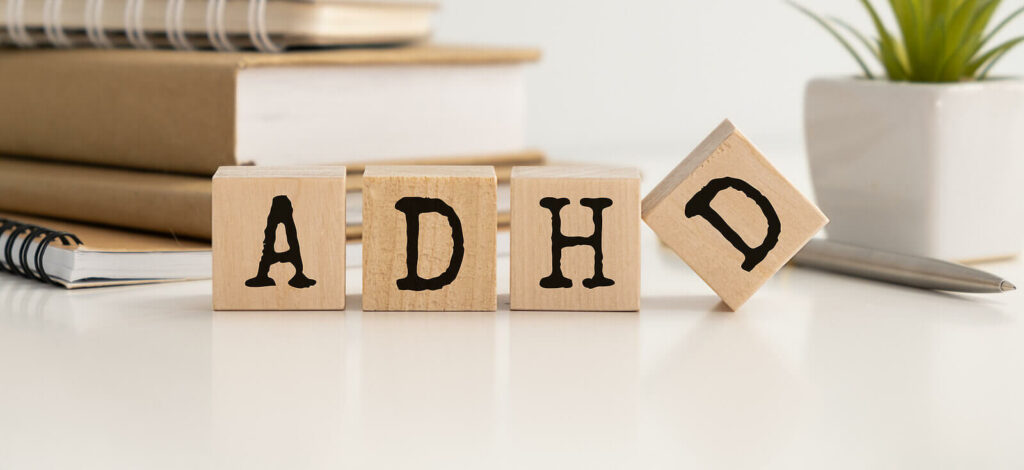Attention-Deficit/Hyperactivity Disorder (ADHD) is a neurodevelopmental disorder marked by a continuous pattern of inattention and/or hyperactivity-impulsivity. It can affect individuals across various age groups, encompassing children, adolescents, and adults. In this article, we will delve into the role of psychologists in diagnosing, managing, and treating this disorder. We will discuss several tips to find an ADHD psychologist near me. Whether you’re a caregiver or simply intrigued by psychological perspectives on ADHD, this article aims to provide comprehensive insights and pave the way for better understanding.
Contents
Is ADHD Treated By A Psychologist?
 Yes, ADHD is often treated by psychologists. They play a crucial role in both the assessment and management of ADHD. They conduct thorough evaluations to determine if an individual meets the criteria for ADHD, differentiating it from other potential psychological or behavioral conditions. This assessment often involves gathering comprehensive histories, using standardized tests, and obtaining observations and feedback from various sources such as teachers, parents, or employers.
Yes, ADHD is often treated by psychologists. They play a crucial role in both the assessment and management of ADHD. They conduct thorough evaluations to determine if an individual meets the criteria for ADHD, differentiating it from other potential psychological or behavioral conditions. This assessment often involves gathering comprehensive histories, using standardized tests, and obtaining observations and feedback from various sources such as teachers, parents, or employers.
Beyond diagnosis, psychologists employ various therapeutic interventions to assist those with ADHD. These can include cognitive-behavioral therapy (CBT), behavioral interventions to help modify disruptive behaviors, and psychoeducation to help individuals and families better understand and manage the condition. A psychologist’s interventions primarily focus on skill-building, strategies, and behavioral adjustments to improve daily functioning.
What Type Of Psychologist Is Best For ADHD?
The best type of psychologist for ADHD is a clinical psychologist who specializes in ADHD or has extensive experience working with individuals with this condition. Several factors determine their suitability:
- Training and Specialization
Look for a psychologist who has received specific training in ADHD diagnosis and treatment. This might include postgraduate courses, workshops, or other specialized training.
- Experience with the Age Group
ADHD manifests differently across life stages. A psychologist who typically works with children might not be the best fit for an adult with ADHD and vice versa. Ensure that the psychologist has experience working with the specific age group in question.
- Cognitive and Behavioral Therapies
Psychologists who are trained in cognitive-behavioral therapy (CBT) or behavioral therapy can offer effective strategies to manage ADHD symptoms. These therapies focus on helping individuals change negative thought patterns, develop coping skills, and modify behaviors.
- Neuropsychological Expertise
Some psychologists have neuropsychological training, which allows them to conduct detailed assessments of brain functions. This can be especially valuable for complex ADHD cases where there might be overlapping neurological or developmental issues.
- Holistic Approach
It’s beneficial if the psychologist adopts a comprehensive approach, considering all aspects of the individual’s life, including their academic or work environment, social relationships, and any coexisting conditions.
- Collaborative Approach
The best outcomes often arise from a collaborative treatment approach. A psychologist who works well with other professionals, such as psychiatrists (for medication management), educational consultants, or occupational therapists, can provide a well-rounded management plan.
In addition to clinical psychologists, school psychologists can also play an essential role, especially for children and adolescents. They assess and provide strategies for students with ADHD to succeed in the educational environment.
How Does An ADHD Psychologist Work?
 An ADHD psychologist undertakes a multifaceted approach when working with individuals diagnosed with Attention-Deficit/Hyperactivity Disorder (ADHD). Here’s a breakdown of how an ADHD psychologist typically works:
An ADHD psychologist undertakes a multifaceted approach when working with individuals diagnosed with Attention-Deficit/Hyperactivity Disorder (ADHD). Here’s a breakdown of how an ADHD psychologist typically works:
Assessment and Diagnosis
- Initial Consultation: This often involves a comprehensive interview with the individual (and possibly their family, if applicable) to gather information about current symptoms, medical history, family history, and developmental milestones.
- Standardized Testing: Psychologists may use various tests and rating scales specifically designed to evaluate attention, impulsivity, and hyperactivity.
- Collateral Information: Feedback from teachers, family members, or coworkers can provide additional insights into the individual’s behavior across different settings.
Treatment Planning
After a clear diagnosis, the psychologist collaborates with the individual (and their family, if relevant) to set goals and develop a personalized treatment plan.
Collaboration with Other Professionals
If medication is deemed necessary, the psychologist might collaborate with a psychiatrist or primary care physician. Collaboration with school personnel, such as teachers or school counselors, can be beneficial for children and adolescents with ADHD to ensure they receive the appropriate academic accommodations.
Monitoring Progress & Support
Regular sessions allow the psychologist to track the individual’s progress, adjust strategies, and ensure that the therapeutic interventions remain effective. The psychologist can also serve as an advocate, particularly for younger individuals in school settings, ensuring they receive the necessary accommodations or services. They can also help adults navigate challenges in the workplace or in higher education settings.
Continuous Education
ADHD research and best practices are continually evolving. An ADHD psychologist stays updated with the latest research, techniques, and interventions to provide the best care possible.
Overall, an ADHD psychologist provides a combination of assessment, therapeutic intervention, education, and support, tailored to each individual’s unique needs, to help them manage and thrive despite their ADHD symptoms.
What Are The Common Techniques Used?
When treating ADHD, a variety of techniques and interventions are employed to help manage symptoms, build skills, and improve overall functioning. Here are some of the most common techniques used by psychologists and therapists in the treatment of ADHD:
Behavioral Therapy
This is at the forefront of ADHD interventions, especially for younger patients. The principle revolves around altering behaviors through reinforcement mechanisms. For instance, using positive reinforcement means rewarding behaviors we want to see more of, such as completing a task on time or staying seated during class. Over time, these positive behaviors become more frequent. Because they are consistently associated with rewards. On the flip side, time-out serves as a brief disengagement from an environment where undesirable behaviors manifest, thus diminishing their frequency.
Cognitive-behavioral therapy (CBT)
CBT has proven beneficial for older children and adults with ADHD. CBT focuses on the interplay between thoughts, feelings, and behaviors. Techniques such as thought challenging help individuals identify and rectify distorted beliefs or negative self-talk that can exacerbate ADHD symptoms. Additionally, ADHD often brings challenges in tackling problems, so imparting problem-solving skills can empower individuals to approach issues in a more structured manner.
Psychoeducation
It is pivotal in the ADHD therapeutic journey. It’s not just about treating the individual but ensuring they, and those around them, understand ADHD. Knowledge demystifies the condition, facilitates empathy, and sets the stage for more effective coping and management strategies.
Skills Training
 For those with ADHD, everyday tasks can sometimes be overwhelming. That’s where skills training steps in. By teaching organizational skills, such as using planners or reminders, individuals can better navigate daily responsibilities. Time management techniques, like breaking tasks down or setting clear deadlines, help in pacing tasks effectively.
For those with ADHD, everyday tasks can sometimes be overwhelming. That’s where skills training steps in. By teaching organizational skills, such as using planners or reminders, individuals can better navigate daily responsibilities. Time management techniques, like breaking tasks down or setting clear deadlines, help in pacing tasks effectively.
Biofeedback & Neurofeedback
Emerging technologies offer tools like biofeedback and neurofeedback to treat ADHD. These approaches allow individuals to gain insight into their physiological and neurological processes and learn to exert control over them. Thereby improving attention and reducing impulsivity.
Relaxation Techniques
Coexisting stress or anxiety with ADHD isn’t uncommon. Thus, relaxation techniques and stress management, ranging from deep breathing exercises to progressive muscle relaxation, become valuable tools in the holistic management of the condition.
Group Therapy
Lastly, group therapy provides a communal platform for individuals with ADHD. In this space, they not only learn from professionals but also from peers. And understanding that they’re not alone in their journey and gleaning insights from shared experiences.
In essence, treating ADHD is a comprehensive process. Thus, it requires a blend of techniques, ongoing support, and often a multi-disciplinary approach to ensure individuals lead fulfilling, productive lives.
How To Find An ADHD Psychologist Near Me?
 Finding the right ADHD psychologist in your area is crucial for appropriate diagnosis, treatment, and management. Here are step-by-step instructions to help you locate an ADHD psychologist near you:
Finding the right ADHD psychologist in your area is crucial for appropriate diagnosis, treatment, and management. Here are step-by-step instructions to help you locate an ADHD psychologist near you:
- Referral from a Primary Care Physician or Pediatrician: Often, your primary care doctor or your child’s pediatrician can provide recommendations for trusted ADHD psychologists in your area.
- Professional Organizations: National and international psychological and psychiatric organizations typically have directories of certified professionals.
- Insurance Provider: Check with your health insurance company. They usually have a list of in-network psychologists. Some insurance websites allow you to filter by specialization. And, it will help to ensure you find someone who is covered by your insurance and also has expertise in ADHD.
- Online Directories: Websites such as MantraCare, TherapyMantra, and GoodTherapy have extensive directories where you can filter searches based on specialty, location, and other factors.
- ADHD Support Groups and Organizations: Local or national ADHD support groups can be a great resource. Members often share their personal experiences and can provide recommendations.
- Ask for Recommendations: Personal connections can sometimes be the most valuable. Friends, family, or colleagues might know of psychologists who specialize in ADHD.
- Telehealth Services: With the rise of online therapy platforms, it’s also possible to receive services from ADHD specialists via video conferencing. This can be particularly useful if there are limited specialists in your immediate area.
- Interview Potential Psychologists: Once you have a list of potential psychologists, it’s a good idea to schedule a consultation or interview. Ask about their experience with ADHD, treatment approaches, frequency of sessions, and any other concerns you may have.
Remember, finding the right fit is crucial. While credentials and expertise are essential, it’s also vital that you (or the person seeking therapy) feel comfortable and have a good rapport with the psychologist. Building a trusting therapeutic relationship can greatly enhance the effectiveness of therapy.
Conclusion
In the journey of understanding and managing ADHD, the role of a specialized psychologist is paramount. From recognizing the nuanced manifestations of ADHD to implementing tailored therapeutic interventions, these professionals are instrumental in enhancing the quality of life for individuals with this condition. Whether you’re just starting your search or are already in the midst of treatment, it’s crucial to find a psychologist who not only possesses the necessary expertise but also resonates with your unique needs.
Hence, with the plethora of resources available—from personal referrals to online directories—the path to locating the right ADHD psychologist has never been more accessible. If you are experiencing ADHD-related problems, Online ADHD Counseling in India at TherapyMantra can help: Book a trial Online therapy session


